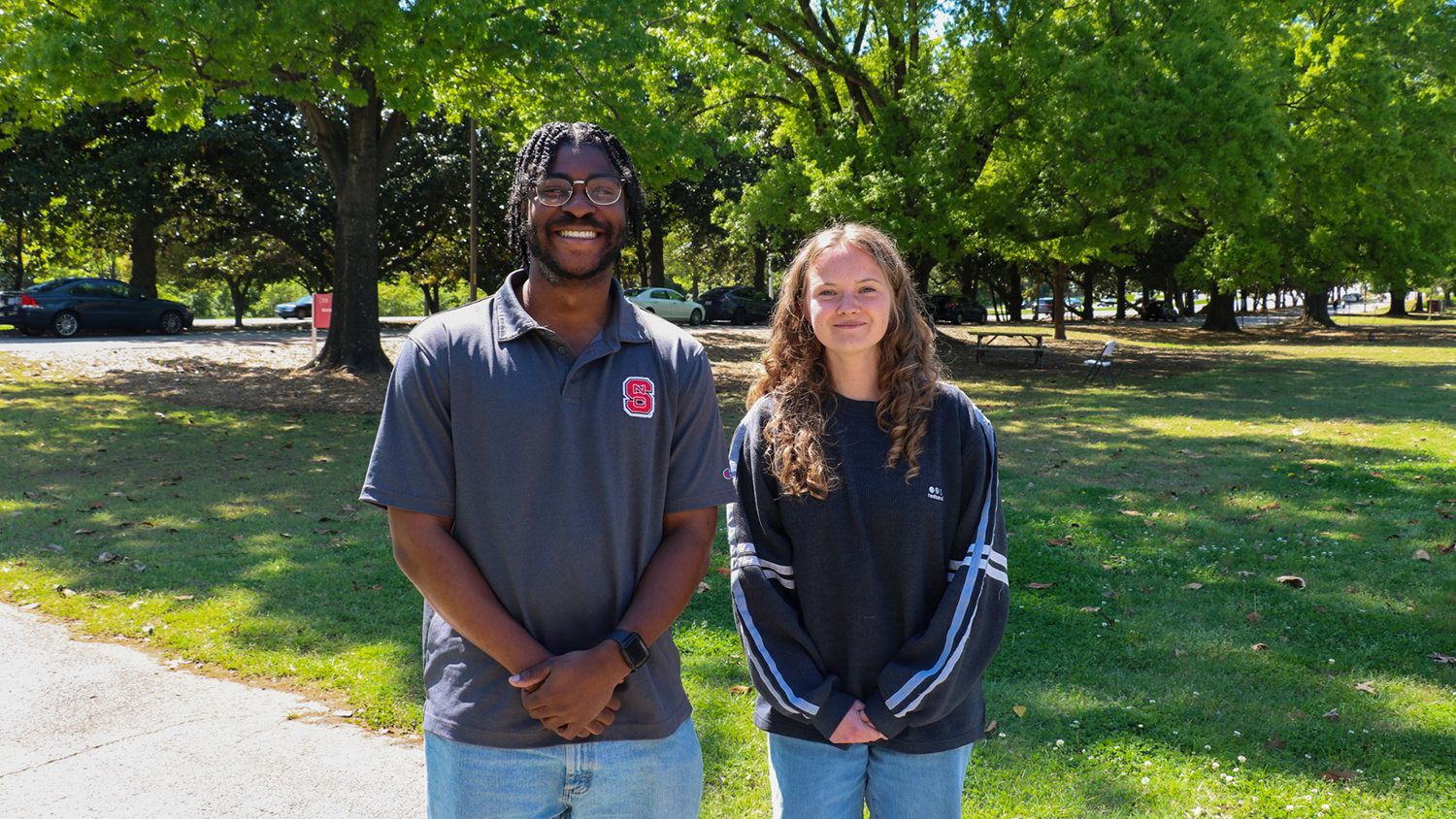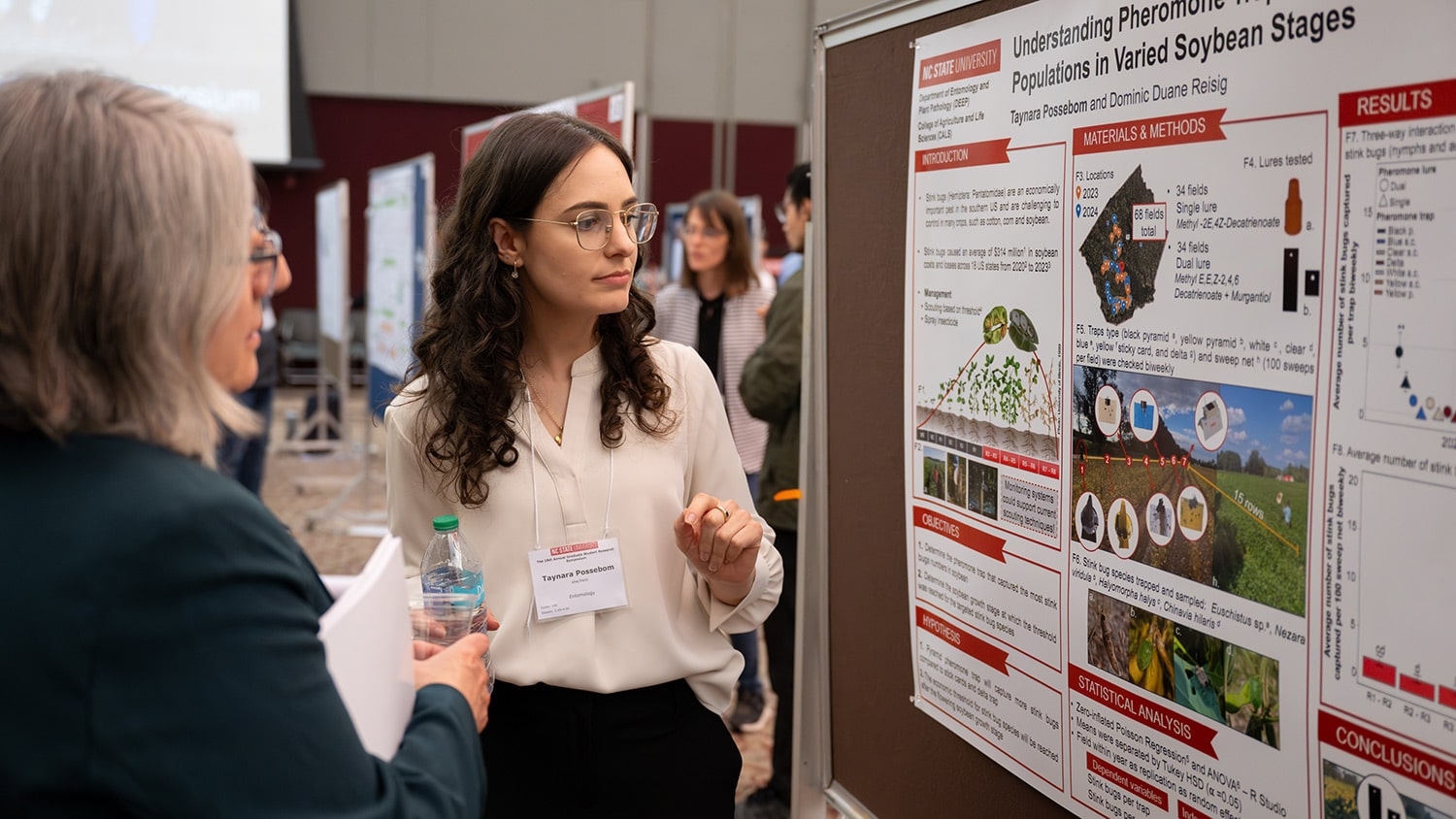Investing in Innovation: Two BAE Students Awarded NSF Fellowship

The U.S. National Science Foundation’s (NSF) Graduate Research Fellowship Program (GRFP) continues to recognize promising young researchers. Among the cohort of 2025 fellows are two students from NC State University’s Department of Biological and Agricultural Engineering (BAE). Christopher Oates and Evelynn Wilcox are among six NC State students awarded the fellowship this year.
The GRFP is a prestigious program that grants fellowships to promising graduate students across the country each year. The program provides fellows with three years of financial support and an annual stipend of $37,000. Its goal is to help support and fund graduate student research that has the potential to make a significant impact in STEM research. With this support, Oates and Wilcox can work toward their research and professional goals.
Lingjuan Wang Li, BAE interim department head, is elated to have students who embody the department’s values and passion receive this honor.
“We’re so proud of them and excited to see the impact they’ll continue to make in their fields,” Wang Li says.
Oates is working towards his Ph.D., with research that centers on water quality monitoring, modeling and management. His goal is to identify and fill monitoring gaps so that more people have access to the environmental data they need.
“I focus on nutrient management, as elevated nutrient concentrations in waterways can lead to eutrophication and harmful algal blooms,” Oates says. “While there are many extensive water quality monitoring systems and programs across the country, my research has found that many of the most agriculturally-intensive U.S. watersheds either completely lack nutrient monitoring or have monitoring stations that are overburdened relative to the nutrient inputs in those watersheds.”
Growing up in a rural area helped shape Oates’ passion. “Issues like hurricanes, subsequent flooding and poor water resource management have significantly impacted my hometown, and limited educational opportunities make addressing these issues even more difficult. As such, I wanted my graduate research to address some of the challenges that are common in many communities similar to where I’m from,” he says.
Wilcox is also looking to address major challenges. A senior majoring in biological and agricultural engineering, she will remain in the department after graduation as a graduate student. As an undergraduate student she has worked as a research assistant in the department. This sparked her interest in using image processing to better understand natural systems. Her past research focused on a remote sensing project aimed at characterizing shoreline and habitat changes at the Rachel Carson Reserve in North Carolina and contributing to the development of a disease detection model that quantifies the extent of disease in tomato plants.
“Looking ahead to graduate school, my research will include the development of deployable technologies that seek to further optimize agricultural systems,” Wilcox says.
She is passionate about her work because it is uniquely positioned to apply emerging technology to long-time agricultural challenges. The potential to make a difference in the lives of farmers and ensuring they have the tools they need to succeed in an ever-changing environment is also very motivating for her.
“By leveraging advanced tools and techniques, we can collect precise data that enable us to optimize agricultural practices and address pressing issues such as food security, sustainability and resource management in the face of a growing global population,” Wilcox says.
As GRFP fellows, Oates and Wilcox will be able to pursue their passion-driven research. “I’m just really thankful for NSF and their belief in me and my future,” Oates says. “My advisors, Natalie Nelson and Khara Grieger, have been incredibly supportive and instrumental in my graduate endeavors.”
“This opportunity will allow me to continue my work in the Department of Biological and Agricultural Engineering at NC State, where the focus is not just on developing cutting-edge technologies but on creating practical solutions that benefit growers and communities,” Wilcox says. “I am excited about the potential of my research to contribute to the development of sustainable agricultural practices and enhance food security for the future.”
This post was originally published in College of Agriculture and Life Sciences News.
- Categories:


